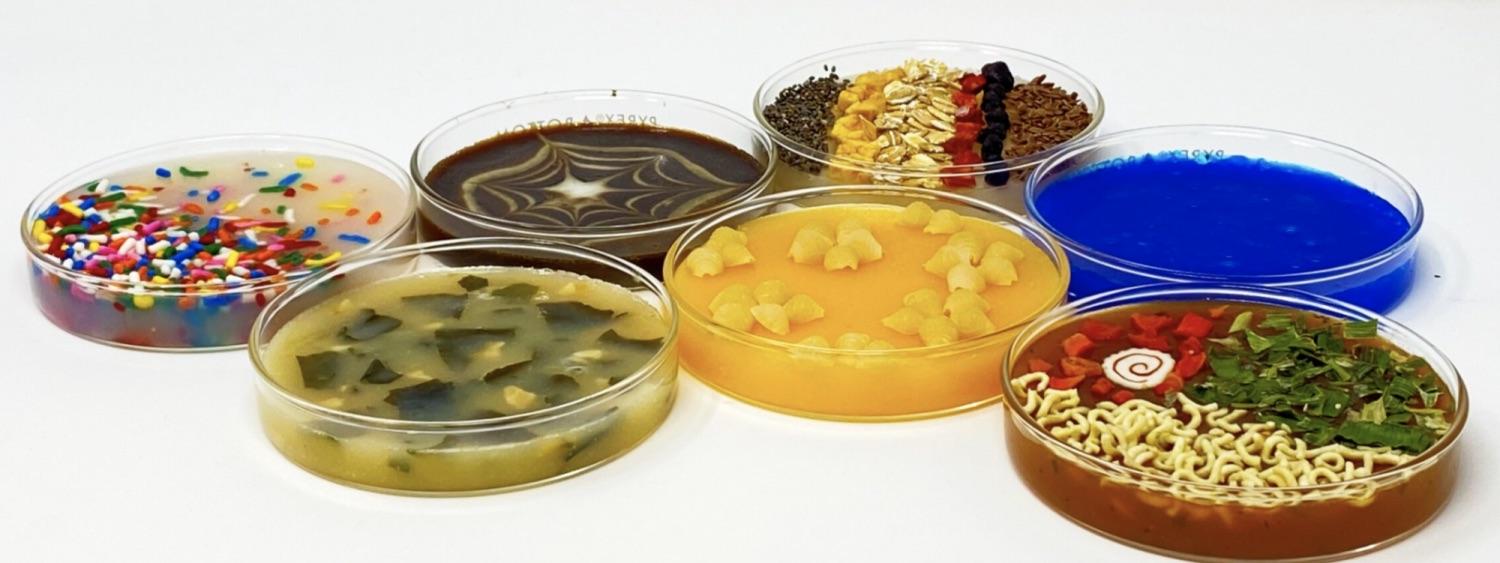Lab Grade Food

This project addresses the Biodesign Challenge prompt: "The year is 2071: The ways we eat have changed. What does the future of food taste like? How have climate change, biotech, geopolitics and other factors transformed the way people cultivate, prepare and consume food?" "Lab Grade" Food is a speculative future where we imagine food as energy supplements that promote social equality, environmental sustainability and economic efficiency.
Food was once diverse, heavily embedded and represented history, culture, and community.
In 2071, the fabrication of food in the lab has the power to promote social equality, environmental sustainability and economic efficiency by removing the excessive richness, time and role food once played in our lives. Food has become an energy supplement, evenly distributed among societies and ethnic groups that once had unique dishes and practices, moving closer to enabling equal resources for all people.
Serving portions are now precisely measured and regulated, health and sanitation are controlled, and the pollution and waste produced by food manufacturers are no longer a problem. In addition, these methods oblige people to consume processed food—the revolutionary solution to the extinction of fresh food sources.
In past decades, society has come to realize growing issues around food and indigestion scientists are now trying to find innovative techniques to produce alternative food options. All food becomes “lab grade” food and is accessible to everyone—sanitary, sustainable food options that are globally homogeneous. Food factory workers are promoted to be food technicians—carefully measuring and assembling ingredients to produce nutritious energy sources in controlled portions. Long hours spent in the kitchen are eliminated, freeing up more time for productivity and contributing to the free market.


